Liberals abroad seem to think that for Israel, Operation Protective Edge was a turning point — a wake-up call telling this country that it couldn’t keep going on like this, from war to war to war with no chance for peace. +972 speaks to a number of powerful figures in Prime Minister Netanyahu’s inner circle, past and present, to hear their vision of where Israel is headed following the latest Gaza war.
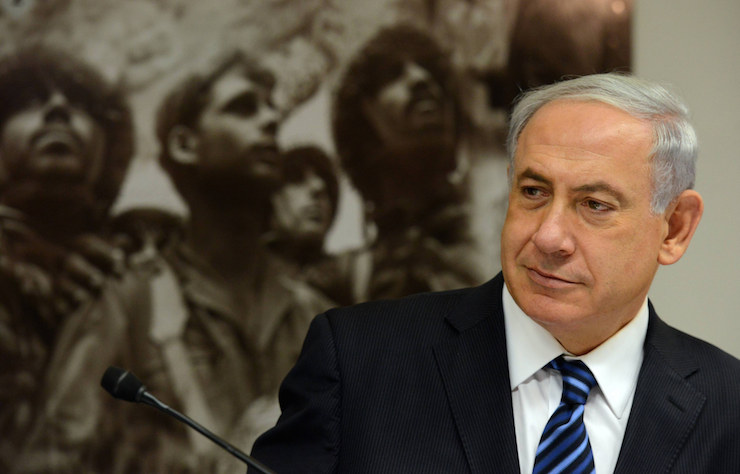
On the first weekend after Operation Protective Edge ended in a cease-fire, I drove down to Sderot, the original rocket-plagued Gaza-border town and a stronghold of the ruling Right, to hear what people had to say. The idea was to try to gauge Israel’s postwar direction in its conflict with the Palestinians. And since the right-wing calls the shots in this country, the thing to do was listen to right-wingers – on the street, in the media, in the think tanks, in the Prime Minister’s Office.
The car radio was tuned to the Friday morning talk show hosted by Judy Nir Mozes Shalom, wife of Likud cabinet minister Silvan Shalom and a rich, self-satisfied, often-caricatured socialite. She was talking to Boaz Bismuth, deputy editor of Sheldon Adelson’s pro-Netanyahu newspaper Israel Hayom about his recent trip to Turkey.
“Why did you go to Turkey? It sounds vile,” said Shalom, what with Erdogan and all the anti-Semitism. “I had to get permission to visit the main synagogue in Istanbul,” said Bismuth. “What?!” said Shalom, who seemed to think Jews in Istanbul now needed permission from the government to go to synagogue. No, Bismuth explained, he needed permission from a Jewish communal organization to make sure he wasn’t a security threat. And what about that Jewish couple who got murdered? “Purely criminal,” Bismuth explained; they’d evidently been killed by their housecleaners over money, there seemed to be no anti-Semitic motive. “But the atmosphere is tense. The atmosphere is anti-Israeli, which is anti-Semitic,” said Bismuth. “Why don’t the Jews there move to Israel, dammit,” said Shalom. “I hope everyone wakes up in time.”
In the center of Sderot, none of the people I talk to expect the cease-fire to last. They all supported the war as one of no-choice. They all express sympathy for the civilians killed in Gaza, but blame the deaths and destruction on Hamas. Most want peace negotiations with Palestinian Authority President Mahmoud Abbas but don’t expect anything to come of them. They say many of the people they know shifted to the right during the war. “We don’t believe in a long-term arrangement with Gaza. We also don’t believe in Bibi. I was in the Likud Central Committee. My whole family was for Bibi, but now a lot of them are going to Liberman, to Bennett,” said Jacky Azran, owner of the Tovaleh restaurant.
On the drive home, I listen to the Friday afternoon musings of Yehoram Gaon, one of Israel’s most beloved entertainers and a household name for 50 years, a former Laborite who has grown cranky and conservative in this post-Oslo century. His monologue is thick with sarcasm. “When Africans are slaughtering Africans or Muslims are slaughtering Muslims, the UN doesn’t care. But when Israel fires in self defense – oh no. … Now they’re threatening us with The Hague. What about Boko Haram, maybe the UN should give them a little Hague, no? Syria, 200,000 dead, Islamic State, they cut off heads. How about a little UN debate about that?”
I’m not being selective here: This was the sequence of what I heard that Friday, August 29, three days after the cease-fire. Besides one voice of relative moderation – the owner of the Sderot minimarket, who supports Tzipi Livni and speaks of Abbas as “our only partner” – it was solid right wing, in person and on the air.
And it didn’t stop with Yehoram Gaon. The next host on the program, culture journalist Haim Adar, said the war had reminded Israelis that “we are a people that dwelleth alone, fighting for its life,” and that while Europe rebukes Israel without let-up, “it doesn’t pay any attention to Islamic State cutting off people’s heads.” That night on the Channel 2 news, Defense Minister Moshe Ya’alon waved off the possibility of negotiating peace with Abbas, saying, “Without the activity of the IDF and the Shin Bet, Abbas would not have survived.” On the news show’s studio panel, Amnon Abramovitch, the leftist in an otherwise completely pro-government quintet of war commentators, finally caved in, giving Netanyahu and Ya’alon a backhanded compliment for “showing restraint” in Gaza.
And that’s the way it was, as Walter Cronkite used to say.
‘Hamas is ISIS, ISIS is Hamas’
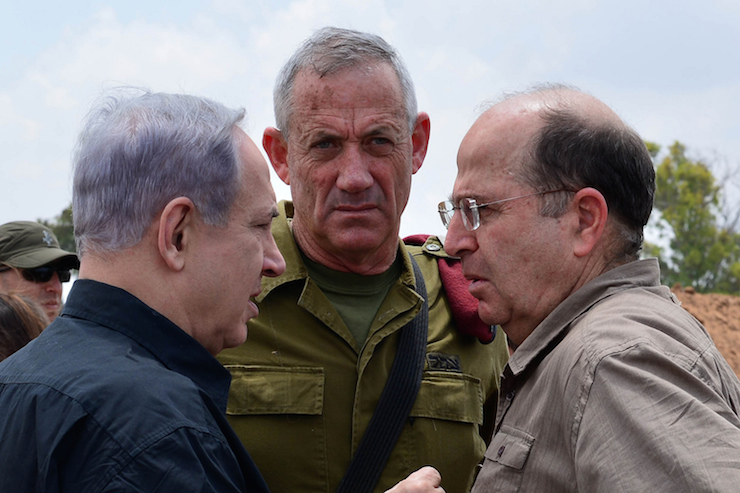
Liberals abroad seem to think that for Israel, Operation Protective Edge was a turning point, a wake-up call telling this country that it couldn’t keep going on like this, from war to war to war with no chance for peace – Israelis couldn’t stand it, the Palestinians couldn’t stand it, and the world couldn’t stand it anymore. The recent years of Israeli security and prosperity had been an illusion, and it had just popped. Things have to change, the constructive critics have been saying, and now is the time.
That’s not the dominant strain of thinking in Israel, though, not from what I heard. The “national camp,” the Right, led by Netanyahu, is going on just like it did before the war – expanding West Bank settlements, stonewalling the Palestinians diplomatically, crushing any sign of resistance, and blowing off the world’s complaints, notably those from the Obama administration. In terms of policy, nothing has changed.
What has changed, though – and this is always at least half the game for Netanyahu – is the hasbara, the spin, the international selling job he and the rest of the right wing do for the policy of endlessly entrenching the status quo. This new information campaign can be summed up in Bibi’s now-famous saying, “Hamas is ISIS, ISIS is Hamas.” As military affairs analyst Yoav Limor wrote in a postmortem on the war in Israel Hayom:
The event that was most helpful to Israel in its public relations battle that it waged alongside the military battle in Gaza took place thousands of kilometers from here – the execution of American journalist James Foley. … The Islamic State group is giving us a rare opportunity to tell an attentive audience in the West something that it has thus far refused to hear: Israel is not the problem, but the solution.
Another talking point in the postwar hasbara campaign is the upsurge in anti-Semitism, especially in Europe, that coincided with Operation Protective Edge. That it was Israel’s actions which rattled so many anti-Semites out of the woodwork goes unacknowledged and unmentioned.
One other change in the Right’s postwar approach, one that’s part hasbara and part genuine strategy, is what Netanyahu calls the “new diplomatic horizon.” He and his allies think Egypt, Jordan, Saudi Arabia and other “moderate” Arab states now see Israel as the “enemy of their enemy,” their primary enemy being radical Islam, including Hamas, and that this could strengthen Israel’s position against Gaza. They also see it as a good argument against the West’s criticisms of Israeli overkill during the war: If your Arab allies are happy – privately if not publicly – why are you complaining?
So the national camp doesn’t see the war with Gaza as the occupation’s last stand, not by any means; it sees the war not only as a military success but as a political advance, too, one that leaves this country freer to pursue its prewar policy toward the Palestinians, which is, as noted, the entrenchment of the status quo.
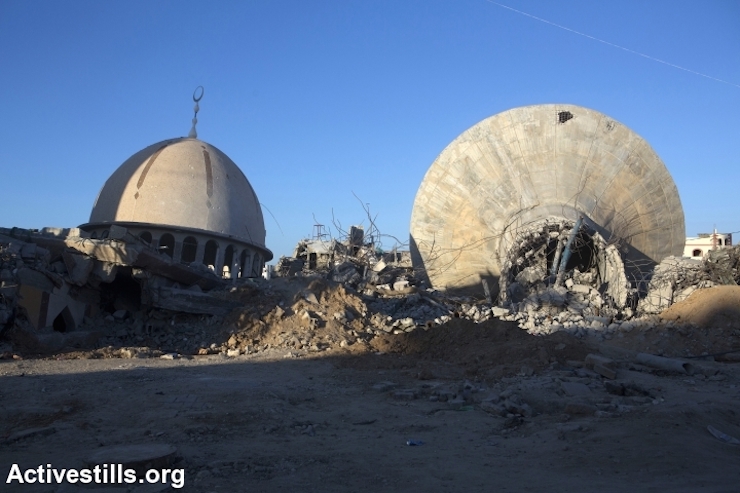
They’re not worried about all the dangers that liberals, foreign and domestic, warn Israel about: losing U.S. and European support, being tried for war crimes at The Hague, getting hit with more and more boycotts, sanctions and divestment (BDS).
At most, they pay lip service to the old, repeated-to-death danger posed by the occupation somewhere down the line – that it will cost Israel either its democracy or its Jewish character. This “threat” isn’t pressing on the national consciousness any more urgently than global warming.
The danger to the economy posed by the current policy, though, is taken seriously; the cost of the fighting in Gaza was enormous, and people here will soon feel it in the deep budget cuts to education, health and every other civilian sector needed to pay for the war, and possibly in higher taxes and recession, too. Yet the Israeli economy has proven resilient after recent wars, at least for the rich and the solidly middle class, while the lower middle class and poor don’t have much of a say. At any rate, everyone understands that wars cost money, so people have to tighten their belts – and people here are not in much of a position to complain, when 95 percent of them, according to Israel Democracy Institute polls, supported Operation Protective Edge.
As for the loss of hope in peace, and the nation’s resigning itself to a future of one war after another – that didn’t begin with this last campaign in Gaza.
“No one believes the cease-fire is going to last, the rockets will start again in another month, another year, another few years. It never ends. We always try to make peace with the Palestinians, and they always choose terror,” said Shai Sofferman, a customer at the Sderot mini-market. “I thought Bibi did a good job during the operation,” he added.
What Operation Protective Edge did was to take Israelis’ apathy and fatalism and deepen it, which is another gain for Netanyahu and the Right. What could be more comfortable for a national leadership going from war to war than a public that no longer expects anything else?
The same way forward
On the night of 9/11, Netanyahu, then out of office, was asked by The New York Times what he thought the attack would mean for Israeli-U.S. relations. “It’s very good,” he said. Then, according to the Times, he “edited himself” and added, ”Well, not very good, but it will generate immediate sympathy.”
It’s not fair to suggest that Netanyahu was “happy” over 9/11, but he knew, like seemingly all Israelis knew, that it was a godsend for the cause of an embattled Israel. Similarly, there’s no reason to think Netanyahu is pleased by Islamic State’s nightmarish exploits, notably its decapitation of two American journalists, but he knows that they serve his purposes.
In speech after interview after statement, he lumps Hamas together with Islamic State as violent Islamist movements, throwing in Al-Nusra in Syria, Hezbollah, Al-Qaida and Iran – and voila, the slaughter in Gaza was a holy cause, one that all decent people share. On September 1 he told a pair of visiting U.S. congressmen:
What we see is that al-Nusra, Hamas, Hezbollah – backed by Iran, al-Qaeda and these other terrorists groups are basically defying all international norms, breaking them whether in Lebanon, in Syria or in Gaza. … I know that this is part of your common position and I welcome it. It helps that Israel, the United States and the other civilized countries stand together against this grave threat to our future.
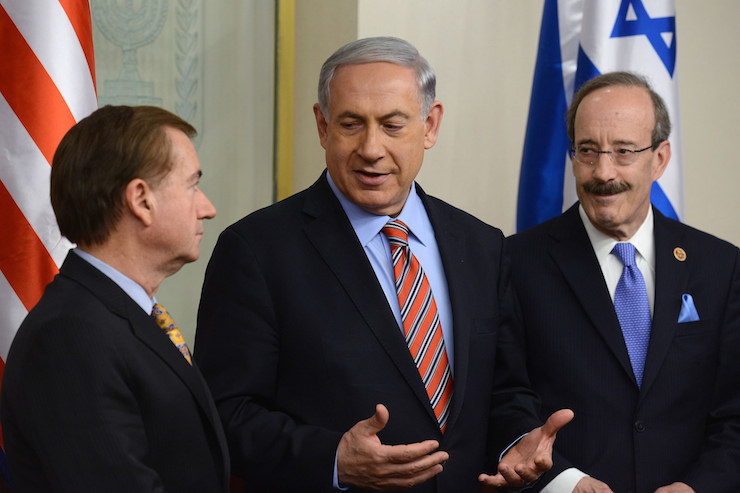
The next day he told a different pair of congressmen:
We’re fighting not just Israel’s war, but I think a common battle against enemies of mankind – Hamas, Hezbollah, al-Qaeda, ISIS, supported many of them by regimes that propel terrorism to the front, like Iran. I think this is a challenge to all civilized nations. Israel and the United States stand together …”
And who’s going to argue with him? Who’s going to point out that Hamas, violent, tyrannical Islamist organization though it is, represents 1.8 million Gazans who have lived under Israeli military control since 1967, and that the other half of their country, the West Bank, remains under full Israeli military dictatorship? Who’s going to suggest that this gives Hamas, frightful as it may be, a legitimacy that the marauders of Islamic State, Al-Qaida and Al-Nusra obviously lack?
In the Western mainstream, which is Israel’s world, not many.
This is the national camp’s postwar defense of those horrific scenes in Gaza, and of its continuation of the policy that led up to them. And since the uproar over the war has largely ended with the cease fire, and the world seems more than happy to forget about Gaza, and even the largest takeover of Palestinian land for West Bank settlements in 30 years, which the government pulled off last week, elicited no more than the usual U.S. whine of “counterproductive,” the national camp’s defense seems to be working.
“The situation in the Middle East and, I don’t like to say it, but what’s happening with ISIS and so on, strengthens our point of view,” Zalman Shoval, a long-time Netanyahu ally and former ambassador to the United States, told me. Asked if he thought the ISIS-equals-Hamas argument was being accepted by the democratic world, Shoval said, “Not sufficiently yet, but that’s the direction it’s going in because if you look at Hamas, the only difference between them and the more extreme Islamist groups is that Hamas wants to work in stages – first is the destruction of Israel, but afterward it has the same goal for the world as ISIS and the others.”
One would never guess that it is Gaza which is actually lying in ruins, and not from the bombs of Hamas or ISIS.

Netanyahu and the Right also believe that having Hamas as an enemy not only gives them a very strong hasbara card, but strengthens Israel in the Middle East by offering it the prospect of an alliance of convenience with Arab states threatened by Islamic militancy – mainly Egypt, but also Jordan and Saudi Arabia. This is Netanyahu’s “new diplomatic horizon.” He said in an August 30 interview with Channel 2:
There are not a few [Middle Eastern] countries that see Israel facing the same threats that they face, and that view Israel not as an enemy but as a potential ally. … The Middle East is changing, mainly for the worse, [but] we have to see if we can go hand in hand with [the changes for] the better.
The anti-Hamas alliance with Egypt’s military regime has already paid off very nicely for Israel; before the Gaza war, Egypt destroyed Hamas’ tunnels leading from Sinai into the Gaza Strip, and the Egyptian-brokered cease-fire that ended the war was tailored to Israel’s specifications.
“Egypt is basically on Israel’s side,” said Shoval.
“I don’t know if it’s practical to try to demilitarize Gaza, but it is practical to stop Hamas from getting [additional] weapons, and as long as we’re sitting with Egypt on Gaza’s borders, we can prevent it – even without an agreement,” said Prof. Ephraim Inbar, director of Bar-Ilan University’s Begin-Sadat (BESA) Center for Strategic Studies, the most prominent of Israel’s think tanks aligned with the Right.
How far such an alliance between Israel and the anti-Hamas Arab states can go is up in the air; there is a price to pay on the Egyptian, Jordanian and Saudi “street” for siding with Israel against Palestinians. But Netanyahu and the Right believe Middle East politics is breaking their way, and that this will strengthen their hand against Hamas and Gaza. And as no one has ever gone broke overestimating the Machiavellian capacities of Arab dictators, Netanyahu and Co. may be right.
‘What boycott?’
If there’s one thing the world (and the Israeli opposition) is pleading with Netanyahu to do, it’s to try to make peace with Abbas (Abu Mazen). Netanyahu was asked his plans regarding Abbas in that August 29 interview with Channel 2. “Abu Mazen has to choose,” he replied. Between what? Between “Hamas and peace,” said Netanyahu.
This is what the ruling Right believes – that Abbas, whose troops have been fighting violence in the West Bank alongside the IDF and Shin Bet for 10 solid years, and who has little to show for it but humiliation, has not yet proven his commitment to peace.
And so they brush off all of Abbas’ long-standing demands – that Israel freeze settlements, agree to a Palestinian state on the 1967 borders with land swaps and with East Jerusalem as its capital – as well as his new demand, that the stalling end and the deal be essentially done in a matter of months. Instead of taking even a step toward Abbas, the most you’ll hear from right-wingers is that the Palestinian leader has to climb down from his “inflexible” stance in the Kerry-sponsored, nine-month peace talks that ended in failure in April, and accept small, incremental deals that wouldn’t solve the conflict, but might, in their view, defuse it.
Inbar, of Bar-Ilan University’s BESA Center, doesn’t bother with such notions. Asked if he thinks Netanyahu should be more forthcoming to Abbas than he was before the war, he tells me, “No, I think Israelis in general don’t see the Palestinians as partners for peace, and that we have to continue the policy we had before. We shouldn’t offer the Palestinians any more than we did.”
His prescription for how Israel should deal with Abbas: “Keep playing the game even though we know there’s no solution.”
Abbas’ threat to take Israel to The Hague, the International Criminal Court, doesn’t worry Israel’s powers that be, either. An official in Jerusalem who’s familiar with Netanyahu’s thinking told me, “I think we would know how to respond. Netanyahu talks about the ‘double war’ crime committed by Hamas in Gaza. If Abbas is in a unity government with these people, he’s in control of them, so for him, going to The Hague would be a double-edged sword.”
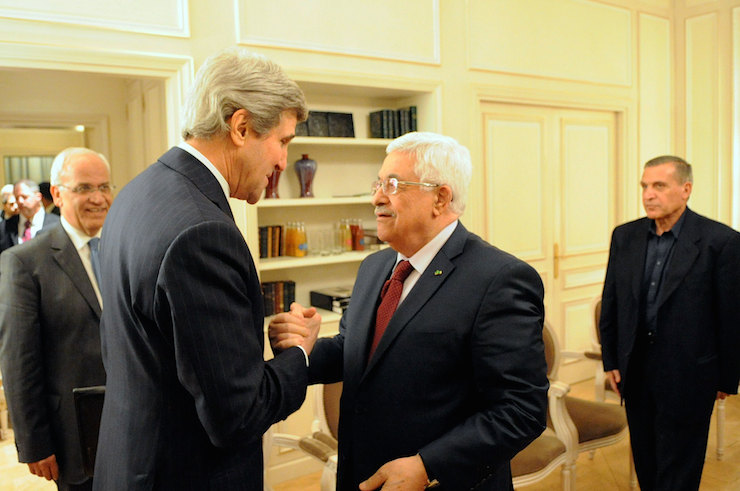
This complacency might be surprising seeing as how Amnesty International and Human Rights Watch argued even before the Gaza war that the occupation was highly vulnerable to a Palestinian challenge at The Hague. Maybe it’s not so surprising, though, because Israel, the United States and Europe are reportedly threatening Abbas with severe punishment if he dares such a move, which is evidently why he hasn’t made good on his threats yet, and why he may never do so. Here again, on the possibility of war crimes trials, the Right’s blithe attitude toward the supposed pitfalls of their policy toward the Palestinians may be based on a clear-eyed reading of the political map.
Neither does the prospect of a postwar spread of the BDS movement scare the national camp. Yaakov Amidror, formerly Netanyahu’s national security adviser, told me, “The BDS movement exists only on the radical margins. These people are already against Israel, the fact that we hurt civilian infrastructure and civilians in Gaza just gives them one more incentive to attack.”
Added Inbar: “What boycott? Business people buy the best product for the lowest price – politics doesn’t interest them. We’re selling more and more to India, to China. We give too much importance to the reactions of the Europeans.”
And who can say that they’re wrong? Before the war, I was one of those who had high hopes for the BDS movement. But then Israel went and committed such a high-profile, long-running outrage, made itself look so brutal in the eyes of hundreds of millions if not billions of people, and … nothing. For all the anguished statements, no foreign government or powerful entity of any sort has sought to make this country or its leaders pay any price for Operation Protective Edge. Gaza and its people have been trampled, and Israel has gotten off scot-free.
So why should the Israeli political establishment and the broad public that identifies with it feel any need to change?
There is of course a price to the nation for taking this direction, beyond the economic price, beyond the unacknowledged moral price, and that is the periodic rounds of death and injury to Israelis, the anxiety, the darkening hopelessness. But Israelis are ready to pay it, or certainly the ruling right-wing Jewish majority is, because they see no other way this country can survive.
The idea that the Palestinians would stop fighting if Israel took its knee out of their spine, or that Israel’s interlocutor in the West Bank has long since stopped fighting, or that the Palestinians, like every other Middle Eastern nation, would be deterred by Israel’s terrible military might if they, like every other Middle Eastern nation, didn’t have Israel’s knee in their spine – such an idea is swatted like a fly by the national camp.
I asked Yoaz Hendel, a Yedioth Ahronoth columnist and Netanyahu’s former communications director, if he thought this was a sustainable future for Israel, if the country could go on fighting the Palestinians indefinitely.
“Unfortunately, yes,” Hendel said. “As long as the Palestinian leadership doesn’t educate its population to democracy, it won’t be a free society but a fear society, as Natan Sharansky put it. And we will find ourselves in conflict because it’s not in our hands. … I don’t see how there won’t be military conflicts with the Palestinians as long as they embrace Islamic fundamentalism.”
No, Israel’s direction hasn’t changed since Operation Protective Edge, only the hasbara is different. The world’s policy toward Israel hasn’t changed, either. And that’s the way it is. And as Edward R. Murrow used to say, good night and good luck.

